Sad I Wont See Surgeon Again

To know which doctor is good, ask hospital employees
"Their word trumps an Ivy League degree, prestigious titles, and charm." —Marty Makary, MD, author of Unaccountable: What Hospitals Won't Tell You and How Transparency Can Revolutionize Health Care. Here is how to find the best doctors, according to other doctors.

Ask about their complication rate
"If they don't have one, they're hiding something or haven't operated enough to have one. No one is immune to complications." —Arnold Advincula, MD, division chief, gynecologic surgery & urogynecology, Columbia University Medical Center

Practically all surgeons have an inherent financial conflict of interest
"That's because they are paid approximately ten times more money to perform surgery than to manage your problem conservatively." —James Rickert, MD, an orthopedic surgeon in Bedford, Indiana.This is what your doctor is really thinking (but won't say to your face).

Don't assume your primary care doctor's recommendation is best
"Referrals may be politically motivated or be given because the doctors work within the same multi-specialty group." —Howard Luks, MD, chief of sports medicine and arthroscopy at Westchester Medical Center and University Orthopaedics
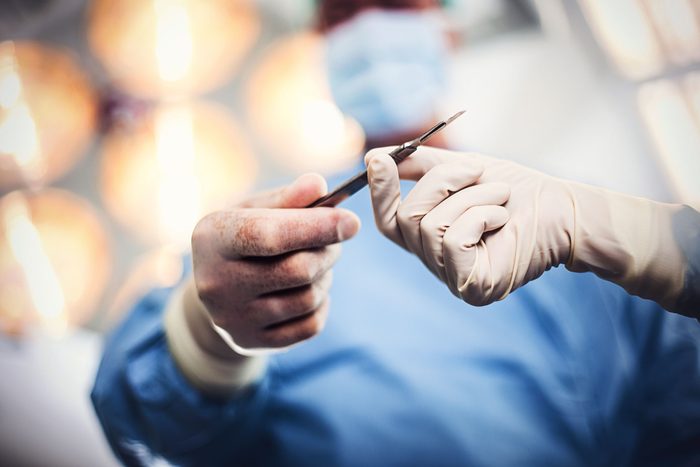
Some surgeons won't mention procedures they don't know how to do
"I'll see patients who were told they needed an open hysterectomy, even though it could be handled laparoscopically. That's one reason it's good to get a second opinion." —Dr. Advincula

Always ask 'Who is going to take care of me after surgery?'
"You want to hear 'I will see you on a regular basis until you have recovered fully.' Often it can be residents or physician's assistants. Sometimes it's not anybody, especially after you've been discharged from the hospital." —Ezriel "Ed" Kornel, MD, clinical assistant professor of neurological surgery at Cornell University.Use these insider tips to improve your hospital stay.

It's better to have an elective surgery early in the week
"Lots of doctors go away for the weekend and won't be around to make sure you're OK. If you go in on a Friday, and then on Saturday or Sunday something icky is coming out of your incision, you're going to get someone who's covering for your surgeon." —General surgeon, blogging under the name Skeptical Scalpel

Some doctors hire practice management consultants to help capture more revenue
"The consultants may want the practice to sell equipment like knee braces or walkers at a markup. They may want the doctors to buy or build a surgery center to capture facility fees. They usually want orthopedic surgeons to get an in-office MRI. Every time a doctor does this, he becomes more financially conflicted. As soon as you put in an MRI machine, you order more MRIs so you won't lose money on it." —Dr. Rickert.(Do you know the difference between a CT scan and an MRI?)

Go to your preoperative appointment with a family member
"That reminds your doctor you're not a gallbladder or a bypass or a valve—you're a person who's part of a family." —Marc Gillinov, MD, author of Heart 411: The Only Guide to Heart Health You'll Ever Need.Now get help deciding whether you should hire a patient advocate.

It's amazing how diligent people can be about searching for the right surgeon but have no idea who their anesthesiologist will be
"That's just as important. Ask 'Who's going to be putting me to sleep?' or ask me who I think the best anesthesiologist is. In some hospitals, you can request that person." —'Skeptical Scalpel'

So often the risks on legal consent forms aren't the things we actually worry about
"Or, there may be one complication we're really concerned about. If you truly want to understand the dangers, ask your surgeon, 'What is the risk that gives you the most pause?'" —Kevin B. Jones, MD, author of What Doctors Cannot Tell You: Clarity, Confidence and Uncertainty in Medicine. Now check out these risky medical procedures that don't always work.
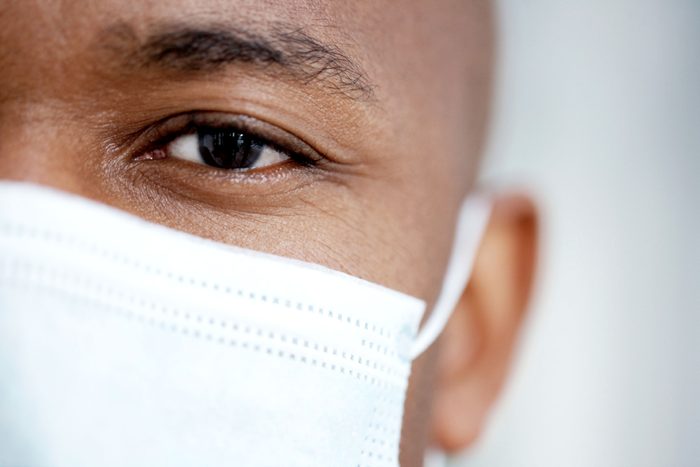
Surgeons are control freaks
"When things don't go our way in the operating room, we can have outbursts. Some of us curse, some throw instruments, others have tantrums." —Paul Ruggieri, MD, author of Confessions of a Surgeon: The Good, the Bad, and the Complicated… Life Behind the O.R. Doors

Mistakes are probably more common than you would think
"But most of them don't actually hurt people. I work with residents, and I don't let them do anything that I can't fix if they screw it up. If there's an error that I fix that I'm sure won't affect the patient at all, I'm not going to say anything about it. That would accomplish nothing except to stress out the patient." —An orthopedic surgeon

Always ask about nonsurgical options and whether there's anything wrong with waiting a little while
"Surgeons are busy, and they like to operate. A professor from my residency would say, 'There is nothing more dangerous than a surgeon with an open operating room and a mortgage to pay.'" —Dr. Jones
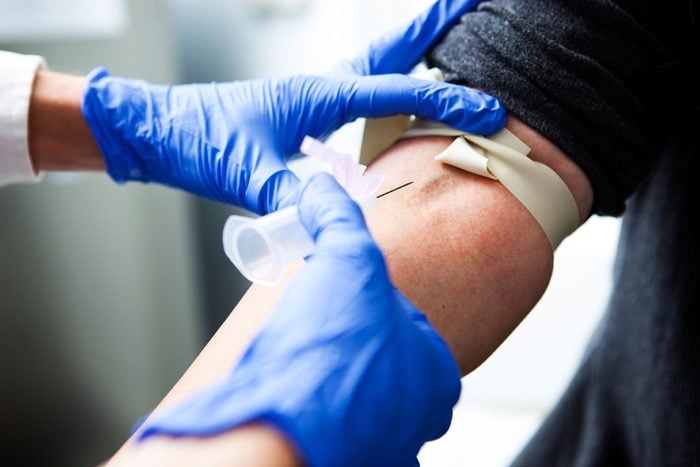
Talk to your doctor about donating your blood or asking your family members to donate blood before an elective surgery
"Banked blood is a foreign substance, like an organ, and your body can potentially react adversely. If you can use your own blood or blood from your family, there's less chance of those reactions." —Kathy Magliato, MD, cardiothoracic surgeon at Saint John's Health Center in Santa Monica, California

Residents have to learn how to operate, and it's required that an attending physician be 'present'
But 'present' doesn't mean he has to be in the operating room, scrubbed in. At an academic institution, ask whether your surgeon will be actively participating in the surgery or just checking in every hour." —Dr. Kornel

It's always interesting to hear what people say when you're giving them anesthesia
"I once had a guy who was a horse trainer who started going on about how this one horse was a sure thing to win. One of the nurses collected money from everyone in the operating room and bet on the horse. It came in second place. The smart people bet the horse to place, but some had bet the horse to win, so half the staff was happy, and the other was upset. He woke up and had no idea what kind of ruckus he'd caused."—Michael Salzhauer, MD, a plastic surgeon in Miami, Florida
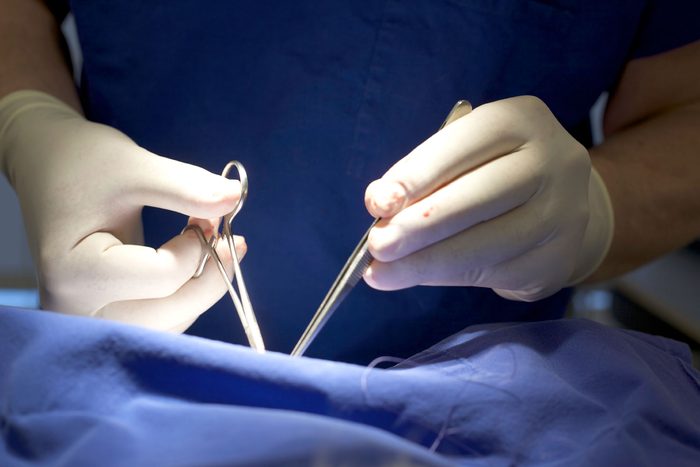
I did an intestinal operation on someone who had been stabbed
"As I was running my hand along the bowel, I came upon something and said, 'What the heck is this?' It felt like a condom. Then all of a sudden, it wiggled! I dropped it, shocked. The guy had worms." —Sid Schwab, MD, a retired general surgeon in Everett, Washington.Don't believe this? Check out the 11 craziest things found inside people's bodies.

During my six weeks as a surgical intern in the ER, I inadvertently stuck myself twice with contaminated needles…
… briefly nodded off in the middle of suturing a leg laceration, accidentally punctured a guy's femoral artery while trying to draw some blood, and broke up a fight between the family members of a guy who'd come in with a stab wound to the abdomen. I was slugged in the head by a delirious patient in an alcoholic rage, spat upon, coughed on, vomited on, farted on, bled on, and mistaken for an orderly." —Dr. Ruggieri
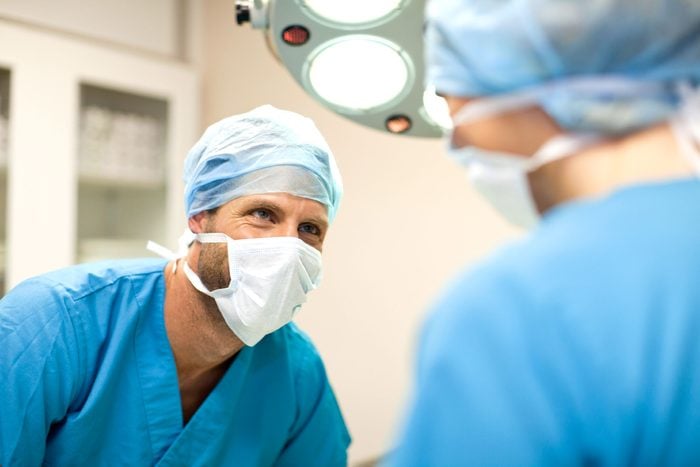
When I get polite in the operating room, when I start saying 'please' and 'thank you' and talking in a monotone, that's when nurses know things aren't going well
"It's this mechanism to maintain calm. When we become unglued, everyone becomes unfocused, and that's when patients die. How you handle stress is absolutely critical." —Dr. Magliato.Here are 60 secrets emergency room staff won't tell you.

Your doctor should not push you to make a speedy decision about prostate cancer surgery
"Most prostate cancers are extremely slow-growing, and there is so much misleading information out there, so you should take your time." —Dr. Vorstman
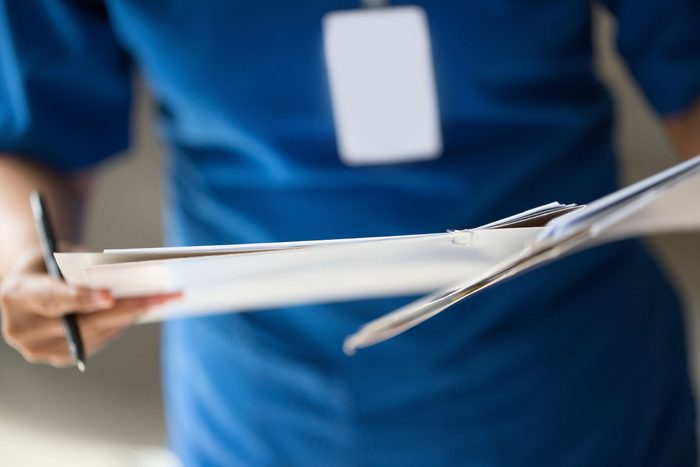
The only real way to understand what happened in the operating room is to read the operative note dictated by the surgeon
"If you have unanswered questions about your surgery, ask for the report." —Dr. Ruggieri

If you have pain in your calf after surgery, or if it swells and looks red, call your doctor right away
"Those are the main symptoms of a blood clot, which is a risk of just about every surgery." —Dr. Rickert

This is what really keeps us up at night
"It's not making a mistake in the operating room; it's the non-compliant patients. When patients don't do what we tell them, bad things can happen." —Kurian Thott, MD, an ob-gyn in Stafford, Virginia.These are the 9 surprising health risks men need to watch out for.

Obesity can pose challenges before and after surgery
"Starting an IV is tough because chubby arms don't have many visible veins. It's difficult to place a central venous catheter. Post-op, they're more likely to get infections. Just getting someone who weighs 300 pounds out of bed is hard." —'Skeptical Scalpel'

If you ask too many questions, you can be branded as a pain in the neck
"When one extremely hostile relative bombarded me every time I walked in, I developed a tendency not to go in the room. If you have three pages full of questions, show them to the nurse. Say 'How many of these should I wait to ask the doctor about? How many can you help me with?'" —Blogger 'Skeptical Scalpel'

About 25 percent of operations are unnecessary, but administrators may e-mail doctors telling them to do more
"This is not an insurance company putting pressure on doctors; this is not a government regulation. This is private hospitals pushing doctors to generate more money by doing more procedures. It goes on at America's top hospitals. The Cleveland Clinic has said this system of paying doctors is so ethically immoral that it started paying its doctors a flat salary no matter how many operations they do." —Dr. Makary.Check out the 11 insider tips every patient should know to lower hospital bill costs.

Some orthopedic surgeons make millions in soft consulting agreements with device manufacturers
"Sometimes the same doctors have performed a record number of implants for that company." —Dr. Makary

If you need a medical device, ask if your doctor has a financial relationship with the vendor
"If so, chances are you're going to get that type of joint or screw, even if it's more expensive or not the most appropriate." —Dr. Rickert.These are the 10 medical tests and procedures doctors don't waste their money on.

Every time a patient dies, I think about the family, the funeral, the children
"I operated on a man who had something very complex and died in the operating room. He had a wife and two children. When I came out to tell them, the children were screaming, 'Mommy, Mommy, I want my daddy.' That was very hard. Even though we present ourselves as very strong, we're vulnerable to depression and other problems. We're human." —A surgeon in Florida

That tiny thank-you card that took you 15 seconds to write?
"It was very meaningful. Letters are a good reminder of how important this is and how people entrust themselves to us. I save every one." —Dr. Gillinov.One more reason to right that thank you note? Here's how gratitude improves your health and relationships.

Patients think that we're so wrapped up in our hectic schedules that we don't care
"But we do. We care deeply. Those of us who are spiritual pray for our patients. My family and I pray for my patients at dinner the night before surgery." —Dr. Magliato

I was about to approach the back of a patient's knee instead of the front for a biopsy
"Because of a checklist, I looked at the imaging again and thought, Yikes! What am I doing? Thankfully, I caught the mistake before I even draped the patient, and no harm was done, but I felt horrible about it. It was more than a year ago, and I still think about it." —Dr. Jones

Fatigue and impatience have undoubtedly contributed to some mistakes I've made in the operating room
"But unless you ask, your surgeon is not going to tell you that he was up all night on call before your procedure and that he may not be in tip-top form." —Dr. Ruggieri

I always ask at national conferences of doctors, 'How many of you know of another doctor who should not be practicing medicine because he is too dangerous?'
"Every hand goes up." —Dr. Makary

Very often, plastic surgery patients don't admit to a previous surgery, and I don't find out until I'm in there
"I'll go in on an eyelid or a nose, and it's just a mess. If you don't tell us you had lipo, there will be scar tissue, and the fat won't come out normally. So please be 100 percent honest. There's no need to be embarrassed. We've heard it all, and we don't judge." —Andrew Ordon, MD, cohost of the television show The Doctors and a board-certified plastic surgeon.Don't miss these 16 medical tips that doctors and nurses wish you knew.

Products like ScarEase, Scarguard, and Mederma do work to reduce scarring
"Start applying daily as soon as your wound has healed, and avoid sunlight or use a sunscreen with zinc oxide for at least six months after surgery." —Dr. Ordon

Patients get really detail-oriented about a surgery technique but forget to focus on basics like pre-op and post-op instructions
"That's just as, if not more, important." —Dr. Ordon

The biggest mistake during recovery is not giving yourself enough of a break
"Give yourself time to heal. If you don't, you can cause complications and prolong your recovery."—Dr. Ordon, MD

If your doctor wants to give you a stent, always ask: Is this better than medicine?
"If you're not having a heart attack or an unstable angina, you will do equally well with a stent or medicine, studies show. Having something permanently implanted in your body is not a risk-free proposition. There is evidence that thousands of people have had stents they likely did not need." —Dr. Gillinov. Here are the heart-health secrets cardiologists want you to know.

If I had any kind of serious medical condition, I'd go to a teaching hospital
"You'll get doctors involved with the latest in medicine. Even for simple cases, if there's a complication that requires an assist device or a heart transplant, some hospitals may not be able to do it. At a university hospital, you also have the advantage of having a resident or physician bedside 24-7, with a surgeon on call always available." —Tomas A. Salerno, MD, chief of cardiothoracic surgery at the University of Miami Miller School of Medicine

Before any operation, always ask what's broken and how fixing it will help
"Just because you have a blockage in an artery doesn't mean you need it fixed, especially if you don't have symptoms." —Dr. Gillinov

We're all afraid of getting sued
"It's the big black cloud hanging over us, and it permeates a lot of the things we do: the tests we run, the labs we order to make sure we're not missing something. I'm guilty of that." —Dr. Ruggieri

Your surgeon may say it's better to do your operation right away even if it's not really urgent
"Why? If you let the patient leave the hospital and something adverse occurs, someone may raise the question 'Why wasn't the operation performed right away?'" —Dr. Salerno, MD. Check out the secrets hospitals don't want you to know.
Sources
- James Rickert, MD, Bedford, IN.
- Martin Makary, MD, Bethesda, MD.
- Kathy Magliato, MD, Santa Monica, CA.
- Paul Ruggieri, MD, FACS, Fall River, MA.
- Kevin Jones, MD, Salt Lake City, UT.
- Sid Schwab, MD, Everett, WA.
- Michael Salhauer, MD, Miami, FL.
- Kurian Thott, MD, FACOG, Fredricksburg, VA.
- Andrew Ordon, MD, Los Angeles, CA.
- Howard J. Luks, MD, Hawthorne, NY.
- Marc Gillinov, MD, Cleveland, OH.
- Ezriel Kornel, MD, Mt. Kisco, NY.
- Albert Vorstman, MD, Coral Springs, FL.
- Arnold Advincula, MD, New York, NY.
- Tomas Salerno, MD, Miami, FL.
Originally Published: June 28, 2018
Source: https://www.thehealthy.com/healthcare/doctors/50-secrets-your-surgeon-wont-tell-you/
0 Response to "Sad I Wont See Surgeon Again"
Post a Comment